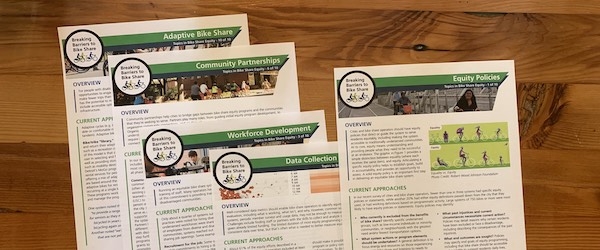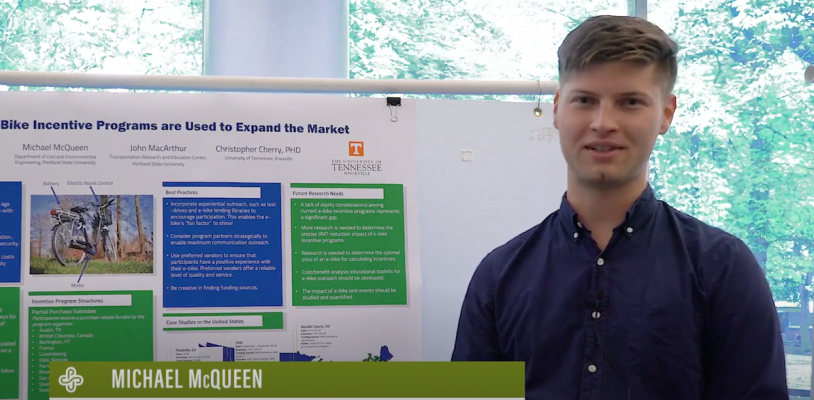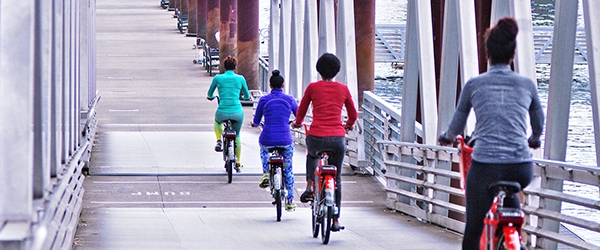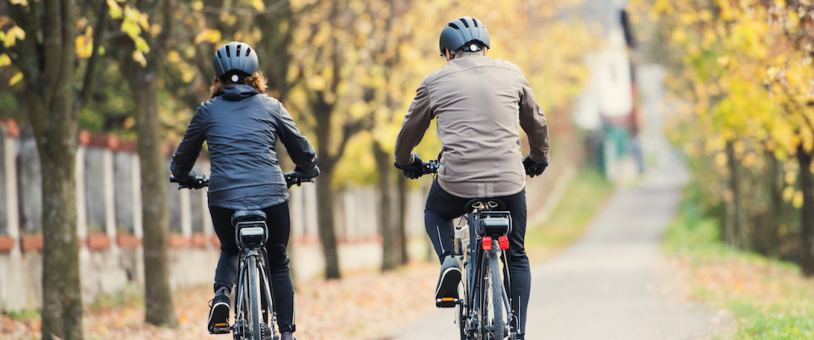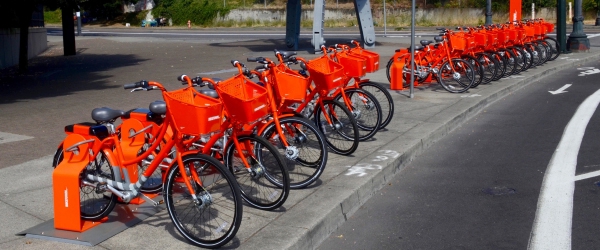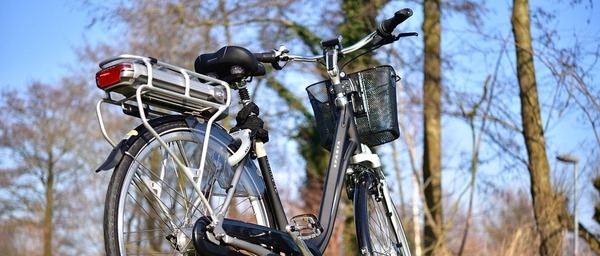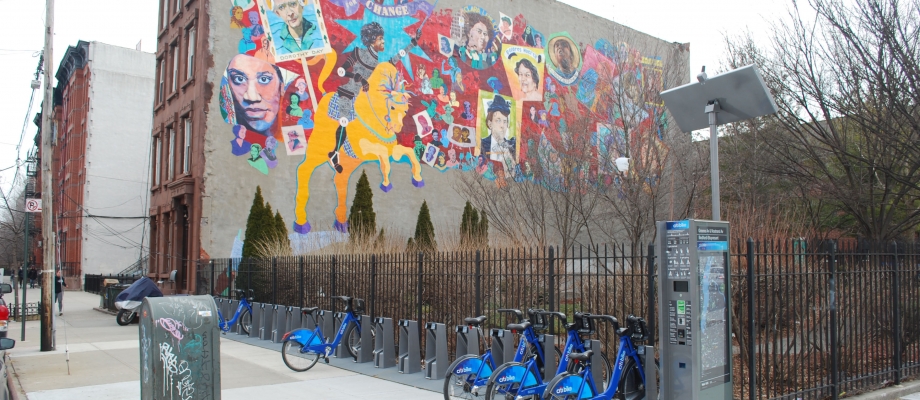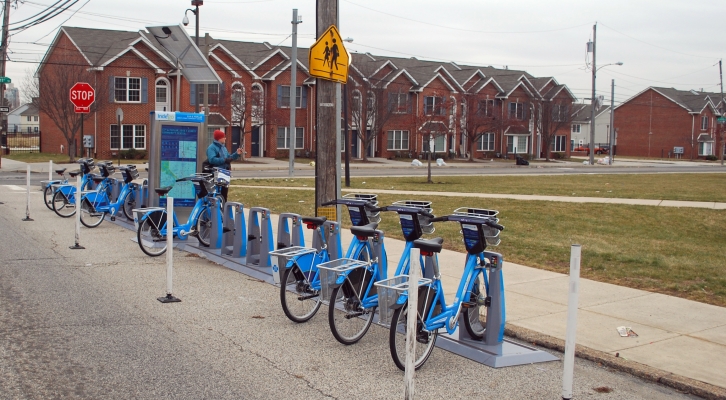Last year, Portland State University’s Transportation Research and Education Center (TREC) released a 130 page evaluation comparing equity-oriented programs from over 70 U.S. bike share systems across the U.S. Bike share being a relative newcomer to the transportation system, the research team was not surprised to find that approaches to equity programs ranged widely. In the latest installment, funded by the Better...
Read moreAuthored by Mike McQueen and John MacArthur, Portland State University
- Read the 2020 research paper in Transportation Research Part D: Transport and Environment with updated model & findings.
- Use the online Electric Vehicle Incentive Cost and Impact Tool
Electric bikes (e-bikes) are quickly becoming common in U.S. cities and suburbs, but we still have a ways to go compared to our neighbors across the Atlantic. In recent years, e-bike sales have steadily increased with unprecedented growth in Europe, especially in the Netherlands. Can the U.S. catch up? E-bikes offer a cheaper alternative to car travel and also provide physical activity. Riders with limited physical ability find that e-bikes...
Read moreMOBILITY BY E-BIKE STUDY
Share your trips with transportation researchers to grow knowledge about e-bike mobility and sustainability.
We're seeking e-bike users from all over the U.S. to join a new research project led by John MacArthur of Portland State University and Chris Cherry of the University of Tennessee, Knoxville. They're looking at the sustainability effects of e-bikes and utilitarian travel behavior of e-bike users, including origin, destination, route, time, speed, mode replacement, and trip purpose. Passively share your trips with us - just plug in a dongle, download our app, and ride like you normally do. The study is open to U.S.-based participants who ride an e-bike with a Bosch onboard computer, and use an iPhone.
Questions? See our Frequently Asked Questions. To learn more and participate, visit the Mobility By E-Bike Study project website.
HOW DOES THE STUDY WORK?
1) Instrumentation
Researchers developed a low-impact instrumentation platform that leverages and merges the unique capabilities of e-bike and smartphone sensors. This technology relies on communication between the e-bike and...
Read moreMike McQueen is a second year PSU masters in transportation engineering student working with John MacArthur and Kelly Clifton. A two-time Eisenhower Fellow, and the 2019 YPT National StreetLight Fellow, Mike researches e-bike travel behavior, and in this video he describes his work on How E-Bike Incentive Programs are...
Read moreThis week, Portland State University’s Transportation Research and Education Center (TREC) releases a new research report comparing equity-oriented programs across several U.S. bike share systems. The research finds a variety of methods in place, ranging from affordability to internal hiring practices and beyond. The report is assisted by Toole Design...
Read more- August 2020: Read the latest research paper with updated model & findings.
- Download the White Paper: Estimating the Effect of E-bikes On Person Miles Travelled and Greenhouse Gas Emissions (PDF)
- Download the White Paper:...
Portland State University students may now ride Portland’s iconic bright orange BIKETOWN bikes for free.
Thanks to a new agreement between PSU and BIKETOWN, Portland’s bike share program, current Portland State students may now ride any available BIKETOWN bike up to 90-minutes per day at no cost by signing up for a student membership online.
BIKETOWN is Portland’s city-owned bike share program, which provides 1,000 shared bikes at over 100 stations across downtown and several neighborhoods. The PSU campus is now considered a Super Hub Zone, which means that BIKETOWN bikes may be parked in any public bike rack on the PSU campus without penalty. Previously BIKETOWN bikes could only be parked and locked in BIKETOWN stations and other designated areas or riders would incur a $2 penalty.
“Portland State is already among the top five most bicycle-friendly colleges and universities in the nation,” said Clint Culpepper, PSU’s transportation...
Read moreIf more drivers switched seats to a bicycle, there would be immediate and tangible benefits on the road. Widespread adoption of bike commuting could improve public health through increased physical activity and reduced carbon emissions, as well as ease the burden on congested roads. However different lifestyle demands, physical ableness, and varied topography create an unequal playing field that prevents many from replacing their car trips.
Electric bicycles (e-bikes) are a relatively new mode of transportation that could bridge this gap. If substituted for car use, e-bikes could substantially improve efficiency in the transportation system while creating a more inclusive biking culture for people of all ages and abilities.
A newly published NITC study by John MacArthur of...
Read moreThe third and final phase of our bike share equity research project has been published, with new findings from a survey of bike share users.
Riders targeted for equity-focused outreach efforts—lower-income individuals and people of color—were most likely to cite cost savings or discounted membership as reasons why they joined, while higher-income and white users were more likely to cite the convenience of using bike share. Lower-income riders were also more...
Read moreAlso check out this series of articles about the project from our partners at Better Bike Share Partnership:
- Researchers investigate where to look next in bike share studies
- Study from Portland shows untapped potential for bike share
- Bike share study shows need for infrastructure is clearer than ever
- Study looks at price and incentives to get low-income residents on bike share
Evidence has...
Read more
